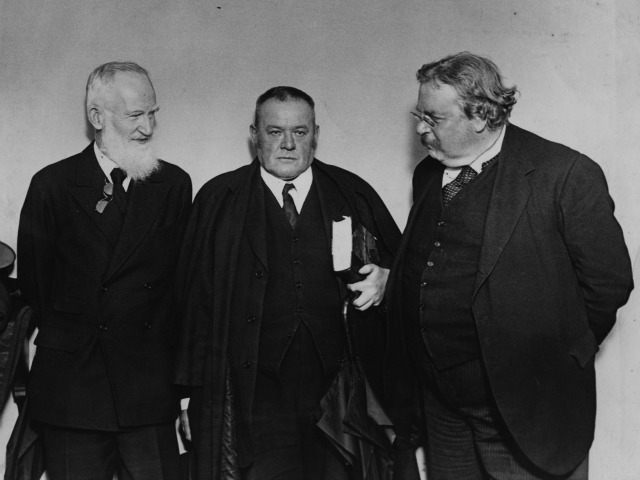The celebrated historian and British parliamentarian Hilaire Belloc was convinced in his day that Europe and America had forgotten about Islam to their own peril, and were unaware that the Muslim religion could rise again and would pose perhaps the greatest threat of any enemy of the western world.
“It has always seemed to me possible, and even probable,” Belloc wrote in 1938, “that there would be a resurrection of Islam and that our sons or our grandsons would see the renewal of that tremendous struggle between the Christian culture and what has been for more than a thousand years its greatest opponent.”
Belloc wrote on a vast range of subjects, from warfare to poetry to history to current affairs. He is known as one of the “Big Four of Edwardian Letters,” along with H. G. Wells, George Bernard Shaw, and G. K. Chesterton.
In his 1938 book The Great Heresies, Belloc devoted an entire chapter to Islam, which he titled “The Great and Enduring Heresy of Mohammed,” in which he predicted the reemergence of Islam as a global force and unparalleled foe of Christian civilization.
It was Belloc’s contention that “millions of modern people,” that is, the civilization of Europe and America, “have forgotten all about Islam.” The reason for this, he reasoned, was that “they have never come in contact with it” and therefore “they take for granted that it is decaying, and that, anyway, it is just a foreign religion which will not concern them.”
But in an ominously prescient way, Belloc declared that on the contrary, Islam is “the most formidable and persistent enemy which our civilization has had, and may at any moment become as large a menace in the future as it has been in the past.”
Belloc reminded his readers that “less than 100 years before the American War of Independence a Mohammedan army was threatening to overrun and destroy Christian civilization.”
There was no reason that Islam would not return to its former power and once again threaten the peace and well-being of Judeo-Christian civilization, he argued.
While Islamic culture “happens to have fallen back in material applications,” Belloc wrote in a damning indictment of European Christianity, “there is no reason whatever why it should not learn its new lesson and become our equal in all those temporal things which now alone give us our superiority over it—whereas in Faith we have fallen inferior to it.”
In Belloc’s mind, all Islam needed to reemerge as a dangerous global power, was a cause or leader to unite its scattered masses in global jihad.
“Now it is probable enough that on these lines—unity under a leader—the return of Islam may arrive,” Belloc concluded.
“There is no leader as yet, but enthusiasm might bring one and there are signs enough in the political heavens today of what we may have to expect from the revolt of Islam at some future date—perhaps not far distant.”
The year 2015 just concluded has proven Belloc a prophet, one who was unheeded in his own day and desperately needed in our own.
Follow Thomas D. Williams on Twitter @tdwilliamsrome

COMMENTS
Please let us know if you're having issues with commenting.